The United Kingdom will commemorate the 80th anniversary of the Normandy Landings in June 2024 with a series of major events across the UK and France, according to a press release.
Known as D-Day, the historic operation saw the Allied Forces mount a large-scale invasion of Nazi-occupied France, tipping the course of the Second World War in the Allies’ favour.
Codenamed Operation Overlord, D-Day on 6 June 1944 marked the largest amphibious invasion in warfare history.
The term “D-Day” was used to denote the first day of any significant military operation, and on this day, the Allies launched a combined naval, air, and land assault on the Normandy beaches, beginning the campaign to liberate Europe and defeat Germany. British factories ramped up production to support the invasion, and approximately 9 million tonnes of supplies and equipment crossed the Atlantic from North America to Britain in the first half of 1944.
The invasion saw unprecedented cooperation among the Armed Forces of multiple nations. By 1944, over 2 million troops from over 12 countries had gathered in England to prepare. These forces included primarily American, British, and Canadian troops, with additional support from Australian, Belgian, Czech, Dutch, French, Greek, New Zealand, Norwegian, Rhodesian, and Polish naval, air, or ground forces.
On the early morning of 6 June 1944, Allied airborne forces parachuted into drop zones across northern France, followed by ground troops landing on five assault beaches—Utah, Omaha, Gold, Juno, and Sword. By the end of the day, the Allies had established a crucial foothold along the coast, enabling their advance into France.
The operation’s scale was immense, with Allied forces utilising over 5,000 ships and landing craft to deploy more than 150,000 troops on the Normandy beaches. By 30 June, over 850,000 men, 148,000 vehicles, and 570,000 tonnes of supplies had landed on Normandy shores. By August 1944, northern France had been liberated, and by the spring of 1945, the Allies had defeated Germany. Historians often refer to D-Day as the beginning of the end of the Second World War.
The campaign came at a great cost, with many lives lost on both sides. Eighty years later, surviving veterans, their families, and supporters gather in Portsmouth and Normandy to remember and reflect on the sacrifices made during this pivotal operation.


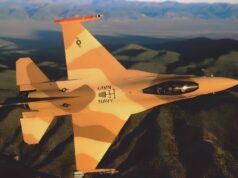


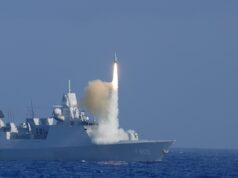

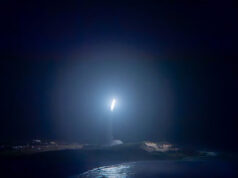
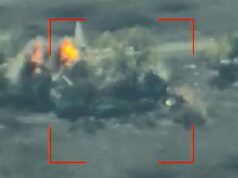
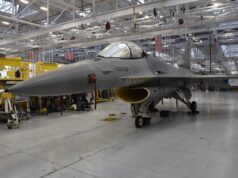
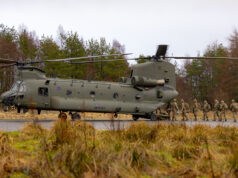


Apparently 50% of school leavers had never heard of it.
If that is true, why?
Do they teach anything about important events in school history classes now or does that offend the far left too much?
It’s ironic really because the far left wouldn’t exist if the nazis had won!
Sadly the narrative seems to be everything that Britain done in the past is bad,
i even read that one French town won’t even fly the union flag!
Carentan? Sounds like that was an honest mistake where they ordered new bunting and it only had EU member states in it. That’s not as good a story though!
So it had Germany on it then….oh the irony
Yes they do teach history. However, it is only mandatory up until year 9 and only for an hour a week in secondary schools, and in primary it may be as little as an hour every two weeks. So that’s not a great deal of time to teach all of history so some subjects are simply not covered. However, from personal experience I did D-day in year 6 and 9. And i know the year 6/7 in the prep school i currently work at look at D-day.
I have friends who didn’t do history in year 9 because we had options.
D-day and WW2 tend to get done more in primary school, I haven’t seen it on any of the GCSE boards.
Yeah we only covered ww2 briefly, so D day would have been half a lessons worth at most. We also touched on ww2 at GCSE, as part of “Britain in the first half of the 20th Century”. We did ww2 proper in year 6 so would have spent a lesson on D day but most of it was on the Battle of Britain and the Homefront. Also, worth noting one of out possible A level subjects was the development of weapons. So it certainly isn’t all liberal art studies like some seem to think it is.
When was this? I’m doing GCSEs now in an independent school and we only had to choose 3 of the academic non-core subjects so for example I could have done Latin, RS and Geography rather than history.
and really? I thought history was mandatory up until the start of GCSE in year 10.
When I were a lad at secondary in the late 70’s early 80’s I can’t remember doing anyting about either war in the 3 years of mandatory history.
All I knew about ww2 etc I had to find out for myself.
tbh I can’t even remember covering Henry 8th or even the Civil War.
We did Britain centric topics such as ancient eygypt , the wild west – that sort of thing….you know really relevant stuff…
My son did History up to degree level I’ll ask him how/if his school syllabus .covered it for a more up to date opinion 😀
Thanks Harry.
Visit schoolhistory dot co dot uk to see the vast range of history topics which can be studied. Is there too much choice? I would argue we ought to focus more on events which formed the national identities of England, Scotland, Wales and Ireland and the United Kingdom. Identities are formed and reformed through struggle; its important not to forget.
I think when it comes to British History apparently we offend people from else we’re DM 🙄 🇬🇧
That sounds like a kind of Faragian shock statistic that has limited truth.
(That being said I’m sure a lot of students switch off and don’t pay attention in history class)
That’s the thing, how accurate is it.
I think the underlying truth still remains that installing a pride in the nation’s past, and culture, and values is not a thing in school, where as in my day in the 80s my history teachers had no such qualms.
D Day, Battle of Britain, two vital events in this countries recent history should not only be acknowledged, but emphasised.
Just my old fashioned, out of date view I expect.
Check the AI article re Sniper rifle, I asked a question your way there.
The second world war is squarely in the curriculum – as an ex teacher I can you that. I was doing a primary school lesson on WW2 about 15 years ago when a Spitfire flew over… sadly too fast and high for the kids to see it! My daughter is a deputy head and she was telling me las week that her primary kinds are learning about WW2 in some depth. So don’t believe the press on anything to do with schools!!
Thank you, Wyn, I’m v pleased to hear that.